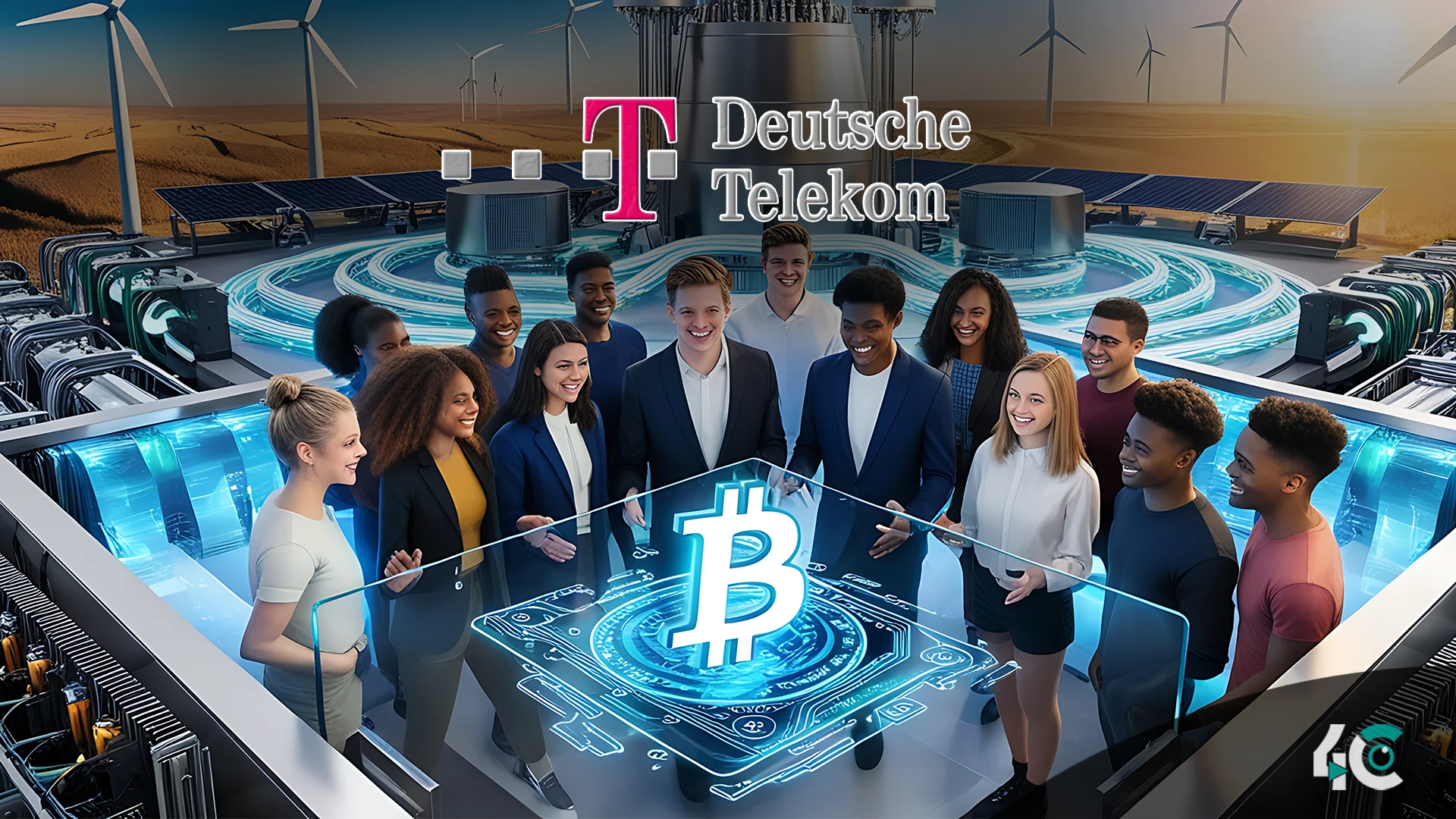Deutsche Telekom, Europe’s largest telecommunications company, has announced its entry into the Bitcoin mining industry. By harnessing surplus energy from renewable sources, this move marks a forward-thinking step toward sustainable cryptocurrency mining while addressing Germany’s growing energy needs.
Deutsche Telekom’s subsidiary, MMS, and Bankhaus Metzler, a prominent financial services provider, collaborated on the “Digital Monetary Photosynthesis” project. Riva, a metal and glass manufacturing company in Backnang, Germany, will house the mining operations. Deutsche Telekom’s Web3 division, MMS, will oversee the mining activities, while Bankhaus Metzler will explore further digital finance opportunities.
A Sustainable Approach to Mining As Germany’s reliance on renewable energy sources, like wind and solar, increases, so do the challenges of balancing grid stability due to fluctuating production levels. Bitcoin mining provides a unique solution to utilize this excess energy that would otherwise be discarded.
By converting excess power into digital assets, Deutsche Telekom aims to create a sustainable model that benefits the environment while leveraging blockchain technology. Stabilizing the grid and expanding digital finance According to Oliver Nyderle, head of digital trust and Web3 infrastructure at Deutsche Telekom MMS, this project offers a dual benefit. It not only supports Germany’s energy grid by managing power fluctuations but also serves as a proof of concept for the future integration of blockchain in the country’s energy sector.
If effective, this pilot project could inspire a larger adoption of blockchain technology in managing renewable energy. In addition to Deutsche Telekom’s efforts, Bankhaus Metzler is exploring other possibilities in digital finance linked to blockchain assets. The project thus represents a holistic approach, combining digital innovation with sustainable energy use. Bitcoin Mining: More Than Financial Gains This venture highlights the broader benefits of Bitcoin mining beyond financial returns.
Initiatives are emerging globally to use the excess heat from mining for community heating projects. In Finland, for example, a similar pilot project recycles the heat from Bitcoin mining rigs to warm homes for an entire town, demonstrating a practical application for cryptocurrency mining. Deutsche Telekom’s project is poised to add value by supporting Germany’s renewable energy transition and showcasing the future of Bitcoin mining as an environmentally conscious venture. This model could redefine the role of cryptocurrency in sustainable development and pave the way for new, energy-efficient financial technologies.
































